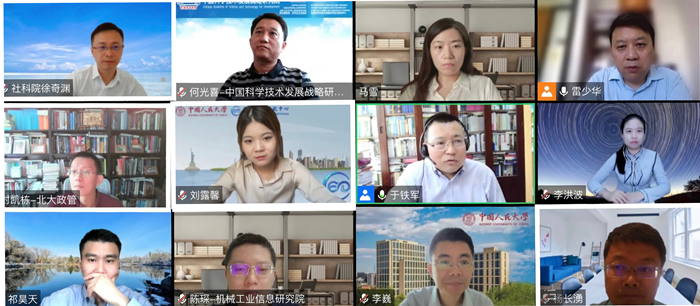On July 23, 2022,the Institute of International and Strategic Studies (IISS), Peking University (PKU) held a symposium on "Technology,Industry and Great Power Competition" and the Eighth "North Pavilion Salon".
The symposium welcomed experts and scholars from universities and research institutions such as Mechanical Industry Information Research Institute, Chinese Academy of Science and Technology for Development, China Academy of Launch Vehicle Technology, China Institutes of Contemporary International Relations,Chinese Academy of Social Sciences (CASS), Renmin University of China and Peking University. Yu Tiejun, Vice President of IISS, PKU, attended the event and delivered a speech. The salon was presided over by Lei Shaohua, Associate Professor, School of International Studies, PKU.

The "North Pavilion Salon" aims at promoting an in-depth dialogue between theoretical and policy research, providing a platform for young and middle-aged scholars for an exchange of ideas. Focusing on scientific and technological competition and industrial development in the context of great power competition, the participating experts discussed issues such as the comparison of technology power and innovation models between China and the USA, U.S. technological and industrial strategies, and U.S. technological and industrial policies toward China, involving aerospace, semiconductor, and basic science as well as other industries and sectors. Experts at the conference pointed out that scientific and technological competition and industrial development have become increasingly important parts of the game between major powers, and the tendency that the U.S. suppresses China's technology and restricts its industry will not change in the near future. It is undeniable that China still lags behind despite the fact that China has made impressive achievements in technology innovation and bridged the gap between two nations in many aspects. Experts at the conference believed that research should be done to study the trends of U.S. strategies over science and technology and industry. We must be solemnly aware of the differences in models and development gaps between two nations in order to effectively improve China's independent innovation capability.
Editor: Li Fangqi

